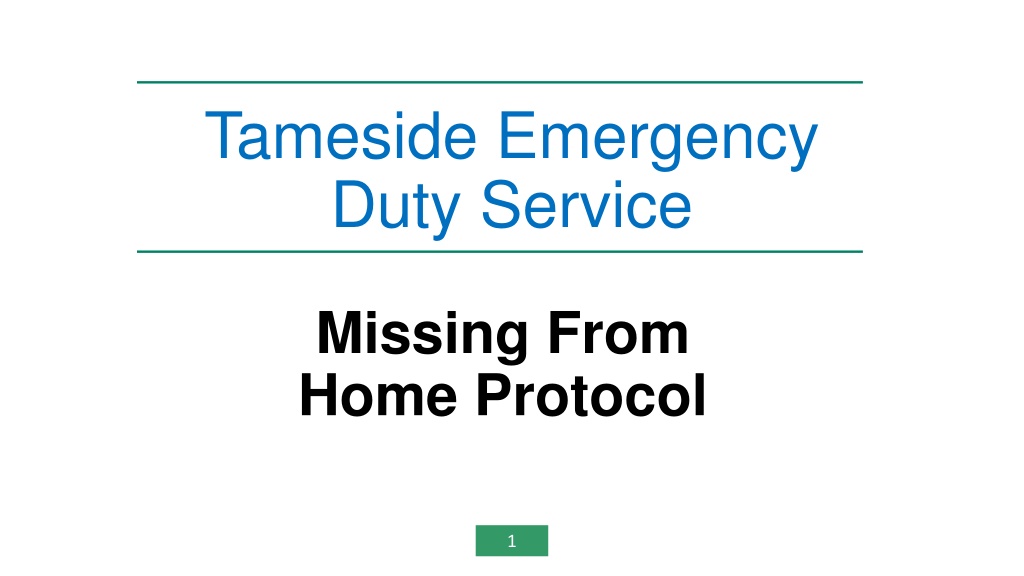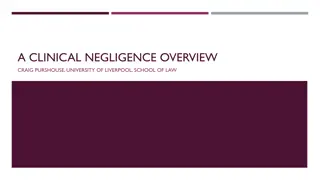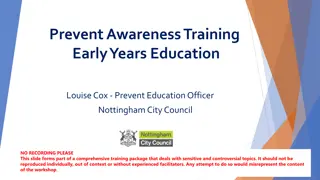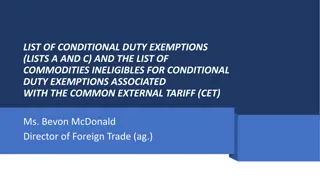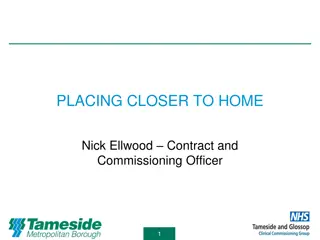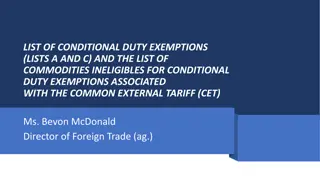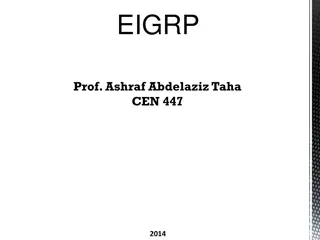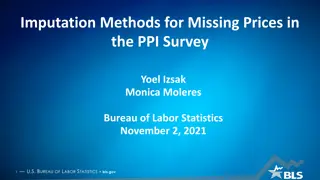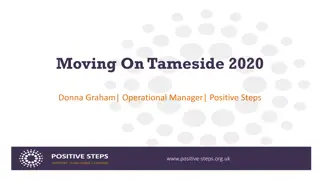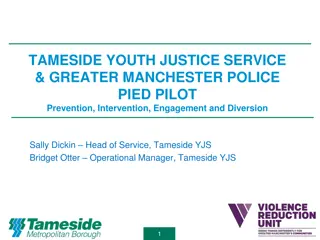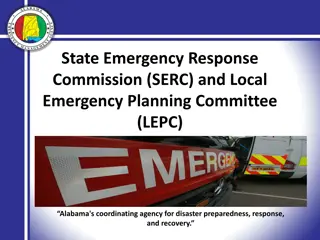Tameside Emergency Duty Service Missing From Home Protocol
The Tameside Emergency Duty Service (EDS) provides support for missing young persons outside of standard office hours. Contact is made through the Emergency Control Room with specific details required for reporting a missing incident. The EDS Social Worker follows up with the residential home to gather more information and update relevant parties. Upon the young person's return, the EDS ensures their safety and records necessary details.
Download Presentation

Please find below an Image/Link to download the presentation.
The content on the website is provided AS IS for your information and personal use only. It may not be sold, licensed, or shared on other websites without obtaining consent from the author. Download presentation by click this link. If you encounter any issues during the download, it is possible that the publisher has removed the file from their server.
E N D
Presentation Transcript
Tameside Emergency Duty Service Missing From Home Protocol 1
Who We Are The Emergency Duty Service (EDS) comprises of: One Team Manager 3 full time permanent workers Sessional staff as required The service is available outside of standard office hours, overnight and at weekends One worker per shift covers all of Tameside The service responds to emergencies Contact via the Emergency Control Room 0161 342 2222 2
Contacting the EDS Please provide the following details during your initial call to the EDS: The young person s full name and date of birth Where the young person went missing from/was last seen by staff What time the young person was expected to arrive home, in addition to the time at which they were last seen A full name and contact number for the staff member reporting the missing from home episode The time and date on which the police were notified, in addition to the log number given. Please do not contact the EDS until the police have been informed, unless reporting an absence only 3
Next steps The EDS Social Worker will contact the residential home to discuss the circumstances regarding the missing from home episode further. This could include the following: Where could the young person have gone? Have there been any patterns, in terms of their behaviour and/or where they have been going lately? Did the young person go missing with another person? Is the young person open to the Complex Safeguarding Team? Are there any further relevant details? 4
Next steps (continued) The EDS Social Worker will update the system, with alerts being issued to all relevant parties who have an involvement with the young person. Any urgent action required will be undertaken by the Social Worker If the young person is cared for, or is subject to a Child Protection Plan, the Conference Chair/Independent Reviewing Officer will also receive an alert. 5
When a young person returns Upon a young person s return, the EDS Social Worker will: Make contact to establish that they are safe and well, when this is before midnight Record the information given, when this is after midnight. 6
Visits to Parents When a young person goes missing from home to visit their parents on a regular basis, it is not always necessary to inform EDS. In such circumstances: The young person should have an individual care plan to provide for such occurrences. Social Workers will advise care home staff of instances where it would not be necessary for them to report a young person as being missing from home. 7
Absences If a young person is absent, rather than missing from home, professionals must ensure that they are reporting this as an absence to the EDS. It must not be reported as a missing from home episode. A young person will only be classed as being missing from home if this has been reported to the police, with a call log number. Care home staff must inform the EDS the time at which the young person returned. 8
Young adults When a young person reaches the age of 18, professionals no longer need to report them as being missing from home. From the age of 18 onwards, if a young person remains open to Social Care, any absence or missing from home episode should be reported to their allocated worker. 9
